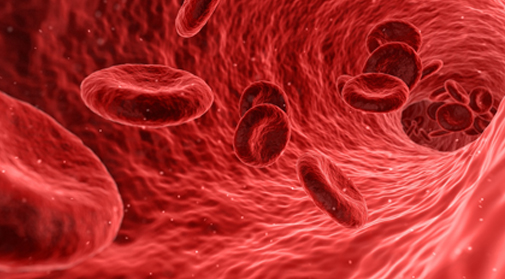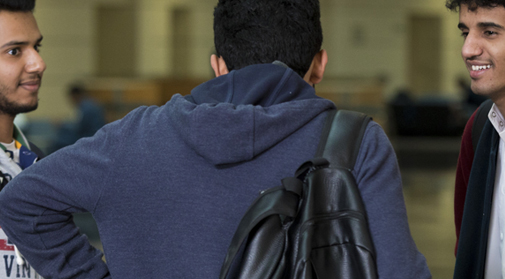Elective Course Description
| HIS 101 | Islamic Civilization and Mediaeval Europe | (3 Credit Hours) | |
|---|---|---|---|
| Studies the foundations of the Islamic civilization, its development and prosperity, places of contact between Europeans and Muslims, means of influence, such as direct contact and the translation of Islamic books in science, medicine, philosophy, literature and arts. | |||
| Pre-requisites: | None | Co-requisites: | None |
| ISI 103 | Special Topics in Islamic Studies | (3 Credit Hours) | |
|---|---|---|---|
| Introduces special topics in the fields of Business, Medicine, Politics and Law and addresses them from an Islamic perspective. It focuses on clarifying the Islamic vision and its corresponding religious rulings, and highlights the features that characterize this vision. | |||
| Pre-requisites: | None | Co-requisites: | None |
| POL 101 | Introduction to Political Science | (2 Credit Hours) | |
|---|---|---|---|
| Introduces the basic concepts, political behaviour, processes and institutions. It involves a discussion and comparison of political ideas, theories, systems and policies. It also provides analysis of political problems, both nationally and globally. | |||
| Pre-requisites: | None | Co-requisites: | None |
| PHL 101A | Engineering Ethics | (3 Credit Hours) | |
|---|---|---|---|
| Examines the ethical dimensions of engineering practice by appealing to relevant concepts and principles in applied ethics; professional ethics; philosophy of technology; and science, technology, and society studies. The importance of these principles for good decision making will be highlighted through analysis of the role of engineers in socially and morally complex case study scenarios illustrating practical issues such as social justice in international engineering projects; standards of professional responsibility; sustainable development; risk analysis modeling; and autonomy based rights in the workplace. | |||
| Pre-requisites: | None | Co-requisites: | None |
| PHL 101D | Ethics and Social Policy in Computing and IT | 3 Credit Hours | |
|---|---|---|---|
| Examines the ethical and social policy implications of contemporary developments in the fields of computing and information technology. Concepts and principles - derived from relevant literature in applied ethics and philosophy of science, technology, and society - will be studied in the context of case study scenarios illustrating practical issues such as privacy and boundary crossing; computing software and the global intellectual property regime; cyber control, network security, and censorship; and the effect of information technology on notions of political governance and active citizenship. | |||
| Pre-requisites: | None | Co-requisites: | None |
<
| ENG 221 | Oral Communication | 3 Credit Hours (CoM | |
|---|---|---|---|
| A speech-intensive course that develops the student's abilities and refines skills in effective oral presentation, speech-making, and the "pitch-driven" case, in rhetorical and goal-oriented "business/professional" presentations on products and positions, and in close attentive listening and speech-act analysis. This course counts for a Humanities course in the University's General Education Requirements. | |||
| Pre-requisites: | ENG 101, ENG 112 | Co-requisites: | None |
| ENG 223 | Literature | (3 Credit Hours) | |
|---|---|---|---|
| The course introduces students to the four major genres of Literature: novels, short stories, drama, and poetry. Focus will be brought to the understanding and appreciating, leading to being skilled and sensitive readers of different major works of Literature. An important component of this course is the management and collection of relevant documents in the organization of a portfolio. Students will be able to analyze and respond to major works of Literature. | |||
| Pre-requisites: | ENG 112 | Co-requisites: | None |
| ANT103 | Medical Anthropology | (3 Credit Hours) | |
|---|---|---|---|
| Presents interdisciplinary knowledge on how culture influences the experience of illness, the practice of medicine, and the process of (traditional and modern) healing for the individual or community. It focuses on the biocultural nature of the practice of medicine and what we can learn from non-Western medical experience and/or plural 'mixed' medical systems. | |||
| Pre-requisites: | None. | Co-requisites: | None |
| ANT104 | Business Anthropology | (2 Credit Hours) | |
|---|---|---|---|
| Provides interdisciplinary knowledge on how anthropological skills, methods, and theories used to solve business problems. It focuses on the nature and application of ethnographic methods that are invaluable within business contexts such as consumer behavior, marketing, corporate culture, and international business. | |||
| Pre-requisites: | None | Co-requisites: | None |
| ANT105 | Introduction to Globalization Studies | (3 Credit Hours) | |
|---|---|---|---|
| Introduces anthropology of globalization studies that examine the global flows of money, people, cultures, ideas, goods, and services. It highlights anthropological knowledge about the sociocultural and political dimensions of global health and the cultural politics of global business. | |||
| Pre-requisites: | None | Co-requisites: | None |
| ARB 103 | Literary Appreciation in Arabic | (3 Credit Hours) | |
|---|---|---|---|
| Introduces a variety of selected Arabic literary texts representing different genre from the pre-Islamic era until modern age to increase the students' understanding and appreciation of Arabic literature, refine their literary taste and improve their skills in analyzing, illustrating, interpreting and criticizing literary works. | |||
| Pre-requisites: | None | Co-requisites: | None |
| GER 101 | Elementary German | (3 Credit Hours) | |
|---|---|---|---|
| Introduces the fundamental elements of German language within a cultural context. Emphasis is places on the development of the basic language skills, vis., listening, speaking, reading, and writing, in addition to grammar and contextual vocabulary. | |||
| Pre-requisites: | None. | Co-requisites: | None |
| SPN 101 | Elementary Spanish | (3 Credit Hours) | |
|---|---|---|---|
| Introduces the fundamental elements of Spanish language within a cultural context. Emphasis is places on the development of the basic language skills, vis., listening, speaking, reading, and writing, in addition to grammar and contextual vocabulary. | |||
| Pre-requisites: | None | Co-requisites: | None |
| SOC 101 | Introduction to Sociology | (3 Credit Hours) | |
|---|---|---|---|
| Introduces the basic concepts in the field, research methods, and theories. It addresses the interrelations among human societies, individuals, groups and organizations. Topics include social interaction, social institutions, social stratification, community, and social change strategies. This course elaborates on the social structure of Saudi Arabian society, its social institutions and stages of social transformation. | |||
| Pre-requisites: | None. | Co-requisites: | None |









